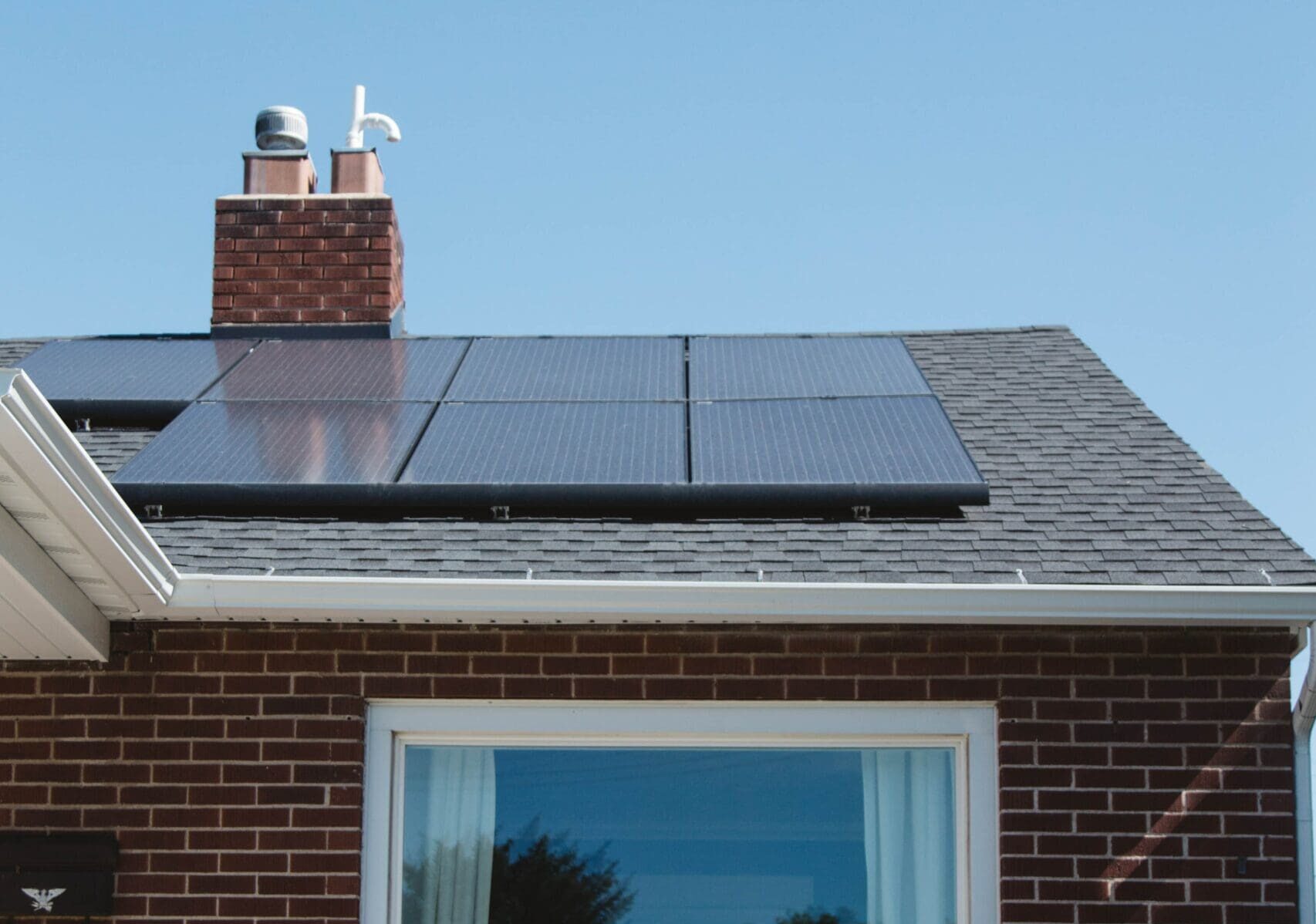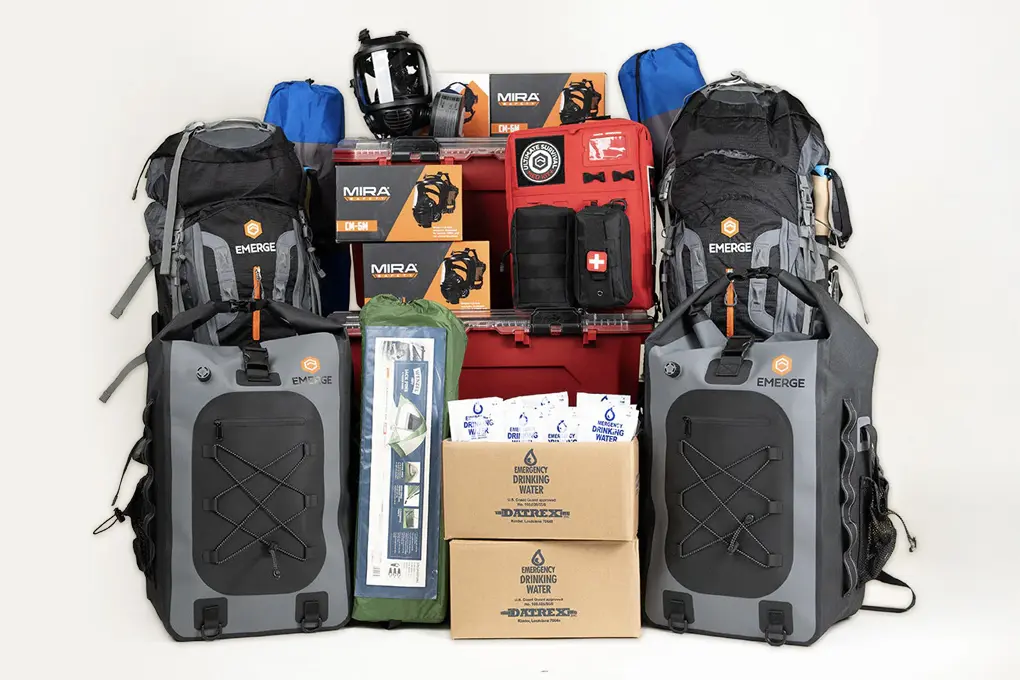In 2024, the U.S. residential solar market faced challenges, with installations declining by 19% due to factors like reduced incentives in California and high financing rates. Despite these hurdles, the nation’s solar panel manufacturing capacity quadrupled to 31.3 gigawatts, reflecting a growing commitment to renewable energy.
As a homeowner who has integrated solar panels into my residence, I’ve experienced firsthand the resilience and reliability they offer during power outages. Modern solar panels are designed to withstand severe weather conditions, including hail, heavy winds, and ice storms, ensuring a continuous power supply when traditional grids fail.
In this article, we’ll examine how solar panels can power your home during disasters in 2025, providing practical insights and steps to effectively utilize this technology for enhanced disaster preparedness.
Table of Contents
- Key Points of This Article
- What Are Solar Panels?
- Different Types of Solar Panels
- Benefits of Having Solar Panels in Case of an Emergency
- How to Use Solar Panels During a Power Outage
- Why Solar Panels Are Essential for Disaster Preparedness
- FAQs About Solar Panels During Disasters
- Why Trust Batten Safe for Your Solar and Disaster Preparedness Needs
Key Points of This Article
- Solar Panels as a Disaster Solution: Solar panels provide a reliable source of electricity during disasters, ensuring homes have power for essential needs like heating, cooling, and charging devices.
- Types of Solar Panels: Understand the differences between monocrystalline, polycrystalline, and thin-film panels.
- Off-Grid Systems and Backup Plans: Off-grid systems and battery storage are essential for using solar panels during a power outage. We’ll also recommend backup generators like the Generac GP8000E for homes without solar.
What Are Solar Panels?
Solar panels are devices designed to capture the sun’s rays and convert them into electricity. These panels are typically mounted on your roof using a racking system that holds them in place a few inches above your shingles, optimizing exposure to sunlight.
Different Types of Solar Panels
If you’ve driven by a house with solar panels, you may have noticed they look different. This is because there are three main types: monocrystalline, polycrystalline, and thin-film panels. Each type offers different benefits and price points, depending on the homeowner’s needs:
- Monocrystalline: Known for high efficiency and sleek design, monocrystalline panels perform well in both direct sunlight and low-light conditions.
- Polycrystalline: More affordable but less efficient than monocrystalline, polycrystalline panels are a popular choice for homeowners on a budget.
- Thin-Film: Best for large roofs, these panels are lightweight and flexible, but typically less efficient than the other two types.
Benefits of Having Solar Panels in Case of an Emergency
In the aftermath of a disaster, power might be out for days, weeks, or even months. Without power, your food could spoil, your home would lose heating or cooling, and you might be unable to charge essential devices. Having solar panels ensures you can power your home during these critical times.
“According to the Solar Energy Industries Association (SEIA), the U.S. solar market grew by 33% in 2023, with a significant rise in installations in hurricane-prone and disaster-prone areas. This growth is driven by the need for reliable, renewable power solutions in regions facing increasing extreme weather events.”
Here are some ways solar panels can help:
- Reliable power source: Solar panels generate electricity even during grid outages, ensuring you maintain access to essential power.
- Cost-effective long term: While the initial cost may be high, solar panels save you money in the long run, especially if paired with federal incentives.
- Environmentally friendly: Solar energy reduces your carbon footprint, making it a sustainable option for powering your home.
This video from Local 10 News outlines some of the benefits of having solar panels during hurricane season:
To learn more about the financial benefits of solar panels, visit the Solar Energy Industries Association (SEIA).
How to Use Solar Panels During a Power Outage
There are many factors that can cause a power outage, from storms to infrastructure failures. Fortunately, solar panels can still power your home during these outages—if you have the right setup.
To use solar power during a blackout, your system needs to include an off-grid configuration or a battery storage system. Without these, solar panels will not work during an outage because they’re typically connected to the grid.
For a detailed guide on off-grid solar systems and battery setups, check out Solar Power World’s article on off-grid systems.
If you don’t have solar panels, consider purchasing the Generac GP8000E Portable Generator, which can power your home during emergencies.
Why Solar Panels Are Essential for Disaster Preparedness
Solar panels have become essential for disaster preparedness in 2025, offering reliable power when it’s needed most. As someone who has navigated multiple outages with a solar-powered home, I’ve experienced firsthand how invaluable this technology can be. The data speaks for itself: solar panel installations in disaster-prone areas increased by 33% in 2023, highlighting the growing recognition of their benefits.
This article addresses searchers’ need for practical, tested solutions by offering clear guidance on using solar panels during outages, exploring system options, and understanding long-term benefits. With solar energy, homeowners gain not only sustainability but also peace of mind during emergencies. Investing in solar power is not just an eco-friendly choice; it’s a smart, forward-thinking solution for any home facing the unexpected.
FAQs About Solar Panels During Disasters
Can solar panels work during a power outage?
Yes, solar panels can work during a power outage, but they need to be part of an off-grid solar system or connected to a battery storage system. Without a battery, the panels will shut down when the grid goes down.
How long can solar panels power a home during an outage?
The duration depends on your system’s battery storage capacity and the amount of sunlight available. With a large enough battery bank, a solar system can power essential devices for several days or more.
Is solar power cost-effective during a disaster?
Yes, while the upfront cost of solar panels can be significant, they save money in the long term, especially during disasters where energy costs spike or supply is limited.
What’s the difference between on-grid and off-grid solar systems?
An on-grid system is connected to the local power grid, meaning it can provide electricity as long as the grid is operational. Off-grid systems, however, work independently of the grid and require battery storage to function during an outage.
Can I install solar panels on any roof type?
Yes, solar panels can be installed on most roof types. However, the roof should be in good condition and ideally face south for maximum sun exposure.
Do solar panels require maintenance?
Solar panels require minimal maintenance. Regular cleaning to remove debris and dirt, along with periodic checks by a professional, will keep your system running efficiently.
Why Trust Batten Safe for Your Solar and Disaster Preparedness Needs
At Batten Safe, we’re committed to helping you safeguard your home with expert advice and well-tested products. Our team specializes in disaster preparedness, home security, and solar energy solutions, ensuring you receive the most reliable and accurate information. We carefully research and test the products we recommend, so you can be confident that they meet high standards of safety, reliability, and performance.
Expert-Led Insights
Our experts stay up-to-date on the latest trends in disaster preparedness and solar energy. We provide data-driven insights to help you make informed decisions about protecting your home, whether it’s with solar panel systems or backup generators like the Generac GP8000E Portable Generator. Our recommendations are based on real-world scenarios, ensuring they’re ready for when disaster strikes.
Unbiased Recommendations
Our reviews are focused on providing unbiased, honest assessments. Whether you’re looking for the best emergency preparation products or considering solar power for disaster readiness, we offer transparent insights to guide your decision-making process.
Tested for Real-World Application
We ensure that the products we recommend—such as solar panels and off-grid solutions—are tested under conditions that simulate real emergencies. Our team evaluates each product’s durability, efficiency, and ease of use, ensuring they deliver when you need them most.



